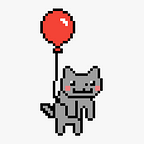Super Tuesday is for Dunking
March 10, 2020 — In the days leading up to and following Super Tuesday, we collected a series of memes that were performing well on social media for a variety of reasons, including biting satire and political commentary. While pejorative nicknames for the 2020 candidates seem to be driving hashtags on social media, shared images fleshed out and expanded cultural conversation online. The visual artillery employed in a meme war is generally more dense and harder to translate than simple nicknames, requiring the viewer to know something more to successfully decode the meaning of these deeply referential images. The political sphere online is recursive; it is formed by participants commenting on candidates public appearances, debates, and interviews in mainstream media. Non-official participants also seek to shape political issues online, propelling fringe talking points into mainstream political conversation.
On Super Tuesday, the memes were both satirical and critical of specific candidates, which provoked angry responses across factions, some of which culminated in allegations of threats and harassment. Satirical political memes, in general, are not created by campaign staffers, but this content is often attributed to the candidate it favors. In particular, Bernie Sanders’ supporters are creating and circulating thousands of satirical and critical memes, which prompted other candidates to call for Sanders to disavow the behavior of zealous constituents, while others are likening the behavior of Bernie Bros to Trump’s fanatical online crowds. Beyond accusations that “bots” or “Russia” are powering online vitriol, the visibility of arguments escalating into seriously dangerous threats are another potentially exploitable vector in meme wars.
Here are examples of satirical and critical memes that circulated on social media on Super Tuesday:
1. Nicknames such as “DementiaJoe” and “CreepyJoe” are driving memes about Biden.
2. Recently, Warren’s reputation has been marred by her claim to Native American heritage, often referred to as “Pocahontas” by right wing pundits, and besieged by snake emojis on Twitter. All of these themes appear in memes about Warren, in addition to assertions that Clinton was behind her campaign.
3. Memes about Pete Buttigieg revolve around his whiteness, and lack of support from POC communities. Many include conspiracies about his calculated career track, such as accusations that he manipulated the price of bread during his time as a consultant for McKinsey by Canadian “bread truthers”. In particular, the nickname “Mayo Pete” stuck after it became a popular tag for the “High Hopes” Dance routine popular at his rallies.
4. Memes critical of Sanders often invoke criticisms of communism and/or socialism and link his politics with more radical agendas.
Amongst the many factions of the online left, there is crossover with some who post non-ironic memes about Sanders ushering in an era of democratic socialism. It’s an open question if “Fidel Sanders” will be sticky enough to become its own meme. “Che Sanders” has an entire product line on Etsy.
5. Like other candidates, a nickname seems to be driving memes about Bloomberg too. “Mini Mike,” as Trump calls him, propelled numerous iterations and even prompted remixes of popular meme templates, such as the homophobic “one urinal rule” meme.
Following Super Tuesday, several candidates dropped out and new memes circulated about who would win prized endorsements. We leave you, dear reader, with this last example:
—
Meme War Weekly is a newsletter addressing political messaging that comes from the wilds of the internet, produced by the Technology and Social Change Research Project at the Harvard Kennedy School’s Shorenstein Center on Media, Politics and Public Policy. Each week, we will look closely at the use of popular slogans and images and how they are shifting political conversations.
// Sign up here to receive Meme War Weekly directly to your inbox.
